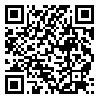BibTeX | RIS | EndNote | Medlars | ProCite | Reference Manager | RefWorks
Send citation to:
URL: http://taxjournal.ir/article-1-979-en.html
Abstract
In this study, a framework for tax compliance is presented in which both the power of tax authorities and trust in them are related dimensions for understanding enforced and voluntary compliance. The dynamic interactions between power and trust are considered. The framework known as slippery slope framework assumes that tax compliance is depended on authorities’ power and Trust in them and voluntary cooperation. The Structural Equation Modeling is used to test slippery slope framework and 362 business owners will be examined. The results show that trust is positively related to voluntary compliance. The trust on authorities also is positively related to legitimate power and negatively correlated with coercive power. The Legitimate power and coercive power are related to forced compliance. Overall, the results are showing the multidimensional nature of power and trust and their relationship with tax compliance. The results also illustrate the importance of power and trust in tax policy.
Received: 2017/04/18 | Accepted: 2017/04/18 | Published: 2017/04/18
| Rights and permissions | |
 |
This work is licensed under a Creative Commons Attribution-NonCommercial 4.0 International License. |



